Up to a third of homeless young people turned away when they seek help from their local council, research reveals
As The Independent launches its Christmas Homeless Helpline appeal, shocking new figures reveal the lack of local provision for young people at the heart of the UK's homelessness crisis

Your support helps us to tell the story
From reproductive rights to climate change to Big Tech, The Independent is on the ground when the story is developing. Whether it's investigating the financials of Elon Musk's pro-Trump PAC or producing our latest documentary, 'The A Word', which shines a light on the American women fighting for reproductive rights, we know how important it is to parse out the facts from the messaging.
At such a critical moment in US history, we need reporters on the ground. Your donation allows us to keep sending journalists to speak to both sides of the story.
The Independent is trusted by Americans across the entire political spectrum. And unlike many other quality news outlets, we choose not to lock Americans out of our reporting and analysis with paywalls. We believe quality journalism should be available to everyone, paid for by those who can afford it.
Your support makes all the difference.Up to one in three young people seeking help from their local council because they are homeless or about to become homeless are being turned away unaided, new research has found.
Freedom of information requests completed by 260 English councils and returned to Centrepoint, the charity for homeless young people, found that only 67 per cent of 16 to 24-year-olds seeking help were recorded as getting some sort of assistance from their local authority.
That left 33 per cent – one in three – who simply disappeared from the records, with every chance that they had been turned away unaided.
And this Christmas, Centrepoint warns, some 25,000 young people could be at risk of homelessness.
Now, to fight what the charity’s patron the Duke of Cambridge has already called the “shameful” scale of the problem, The Independent has joined forces with Centrepoint in a Christmas appeal for funds to launch the country’s first nationwide helpline for young people facing homelessness.
The Centrepoint Young and Homeless Helpline appeal comes as:
- More than 150,000 16 to 24-year-olds are approaching local councils in the UK every year to seek help because they are homeless or at risk of homelessness.
- Front-line Centrepoint workers say a helpline is urgently needed to help plug gaps in services left by central Government austerity cuts.
- Polling has found that more than half of young people admit they wouldn’t know what help they were entitled to if they were facing homelessness.
- New research by Centrepoint suggests that for the past three years the true scale of youth homelessness in England has consistently been more than five times greater than that suggested by official Government statutory homelessness figures.
- Young homeless people are turning to increasingly desperate measures – 12 per cent of them have gone as far as committing a crime so they could be taken into a police cell for the night.
- Centrepoint says the helpline will help it to build on its record of saving the taxpayer £2.40 for every £1 the charity spends.
As well as funding the helpline, the money raised by the appeal will also help pay for the kind of work that allows Centrepoint to achieve positive outcomes with 90 per cent of the young people it assists.

The charity aims not just to put a roof over young heads but also to deal with underlying problems – to rebuild shattered confidence, to teach life skills and, eventually, to turn lives around.
And for many young people, the helpline will be the first step in that process, their first point of contact.
The country's first helpline for young people facing homelessness
The Centrepoint Young and Homeless Helpline will consist of a phone line, offering a sympathetic human voice for young people in dire need, and with additional funding will also reach out via social media, web chats, text messaging and mobile-friendly website apps.
It will provide the right advice and information needed to help young people find safe housing in their local area.
And it will enable those aged between 16 and 25 to secure the support they are entitled to at the earliest opportunity, reducing the risk of harm and increasing the potential for positive outcomes. The platform will help young people negotiate the welfare system and also support those who are not entitled to any state-led support, but nonetheless need help because they are homeless.
It will be the first service of its kind in the country for young people who are homeless or on the verge of homelessness.
Paul Noblet, Centrepoint’s head of public affairs, said the charity’s new research showed how badly a nationwide helpline was needed.
Speaking of the one in three who fail to appear in council records as fitting the statutory homeless criteria – where the council has a legal duty to accommodate them – or having received other support such as help to stay in their current home, he said: “We just don’t know what happens to them. These young people are turning up to their local authorities and in data terms, they are just disappearing. They might be receiving some kind of [undocumented] support – we just don’t know.”
The 33 per cent figure for those who were potentially turned away in the financial year 2015-16 was, he added, a marked increase on 2014-15, when up to 18 per cent were left unaided by their council.
“There is a fear that young people are not being helped,” he said. “That’s the worst case scenario and it is totally plausible. Because we know local authorities are really struggling themselves because of cuts.”
“I don’t think there is a housing officer in any council who wants to turn people away,” he added. “They will always try to make the most generous decision possible. But they are under such pressure because there simply isn’t the money.”
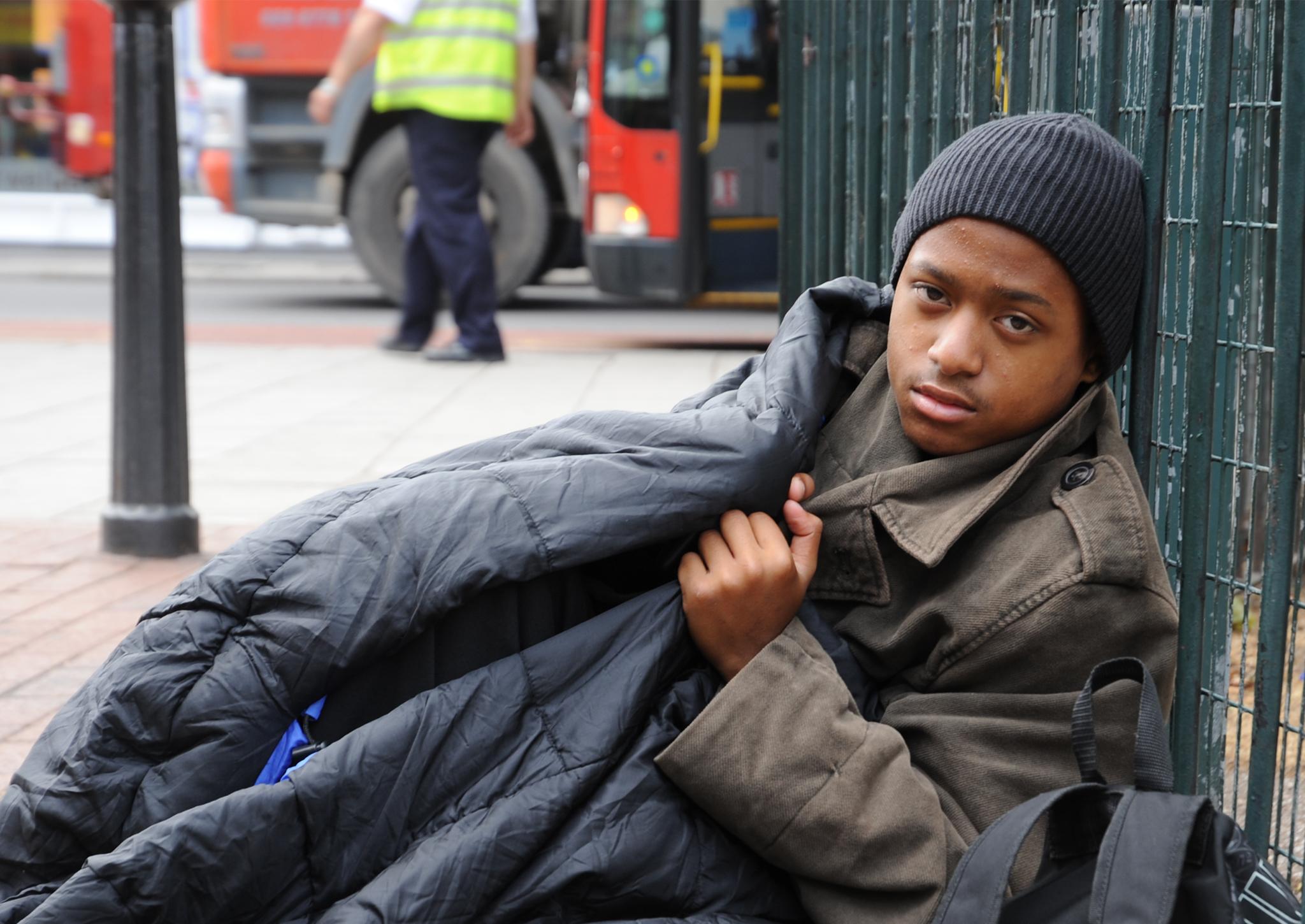
His sentiments were echoed by front-line Centrepoint workers across the country who have told The Independent that the helpline is needed now more than ever.
Due to go live in February, it will, they say, be launched against a backdrop of austerity cuts imposed by central Government on councils that are often the main source of funding – either directly or through grants – for local efforts to help young people.
In Bradford, West Yorkshire, where the city council has warned of a £125m to £130m funding gap by 2020, Centrepoint manager Freda Dyson admitted: “I breathed a sigh of relief when I discovered Centrepoint was going to develop the helpline. It hasn’t come a moment too soon.”
In the past 12 months alone, she explained, she had seen other charities forced to close three of the advice centres that were once dotted around the city and able to help young people in crisis.
“This helpline,” said Ms Dyson, “will be an absolute lifeline for young people.”
Especially so, she added, because in her experience, many young people trying to deal with imminent homelessness “haven’t the foggiest idea where to go for help”.
Newly released YouGov polling data analysed by Centrepoint suggests that nationally, 56 per cent of young people – more than half – wouldn’t know what help they were entitled to if they were facing homelessness.
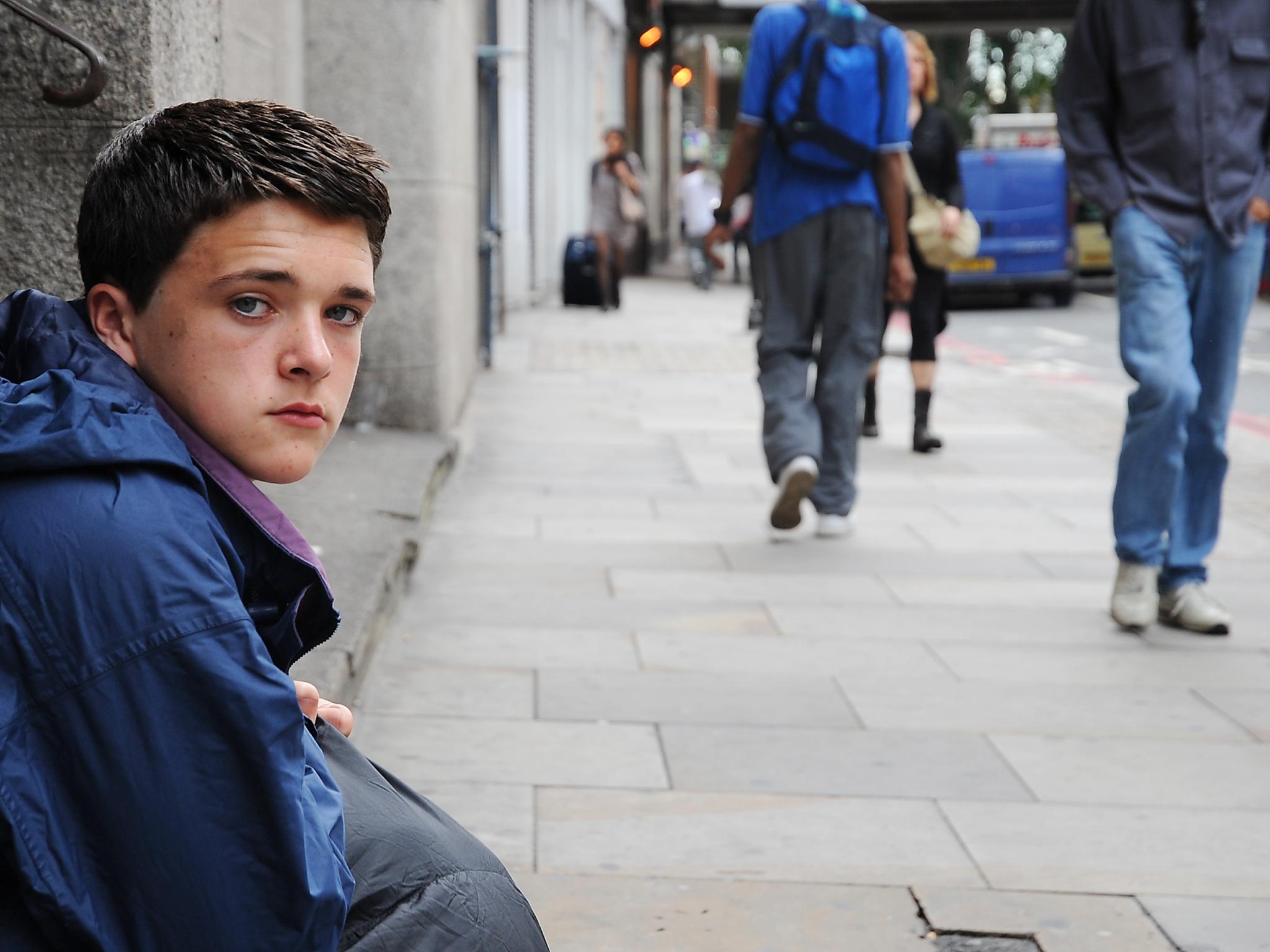
When it came to seeking help and support with imminent homelessness, 41 per cent of young people admitted they wouldn’t know where to go.
And yet the same polling data showed that an estimated 1.1 million (17 per cent) of young people said they had at some point stayed in an insecure or unsafe place, because they had nowhere safe to call home.
Homelessness can happen to anyone
Centrepoint chief executive Seyi Obakin told The Independent homelessness had the potential to blight the life of any young person. Those who sought to stigmatise the young homeless as just alcohol- or drug-addicted youth were, he said, sorely mistaken.
“They don’t know how easily one can slip into homelessness,” he said. In fact, he added, the biggest single cause of youth homelessness was family breakdown.
It is estimated that 59 per cent of the young people that Centrepoint helps into employment and housing every year have had to leave home because of some sort of family breakdown.
And, Centrepoint has revealed, the problem of youth homelessness is far more extensive than some official figures might suggest. In 2015, Centrepoint estimated that 150,000 16 to 24-year-olds were approaching local councils in the UK every year to seek help because they were homeless or at risk of homelessness.
Centrepoint has now found that for the past three years, the numbers seeking help in England have been five times higher than the numbers appearing in official statutory homeless totals.
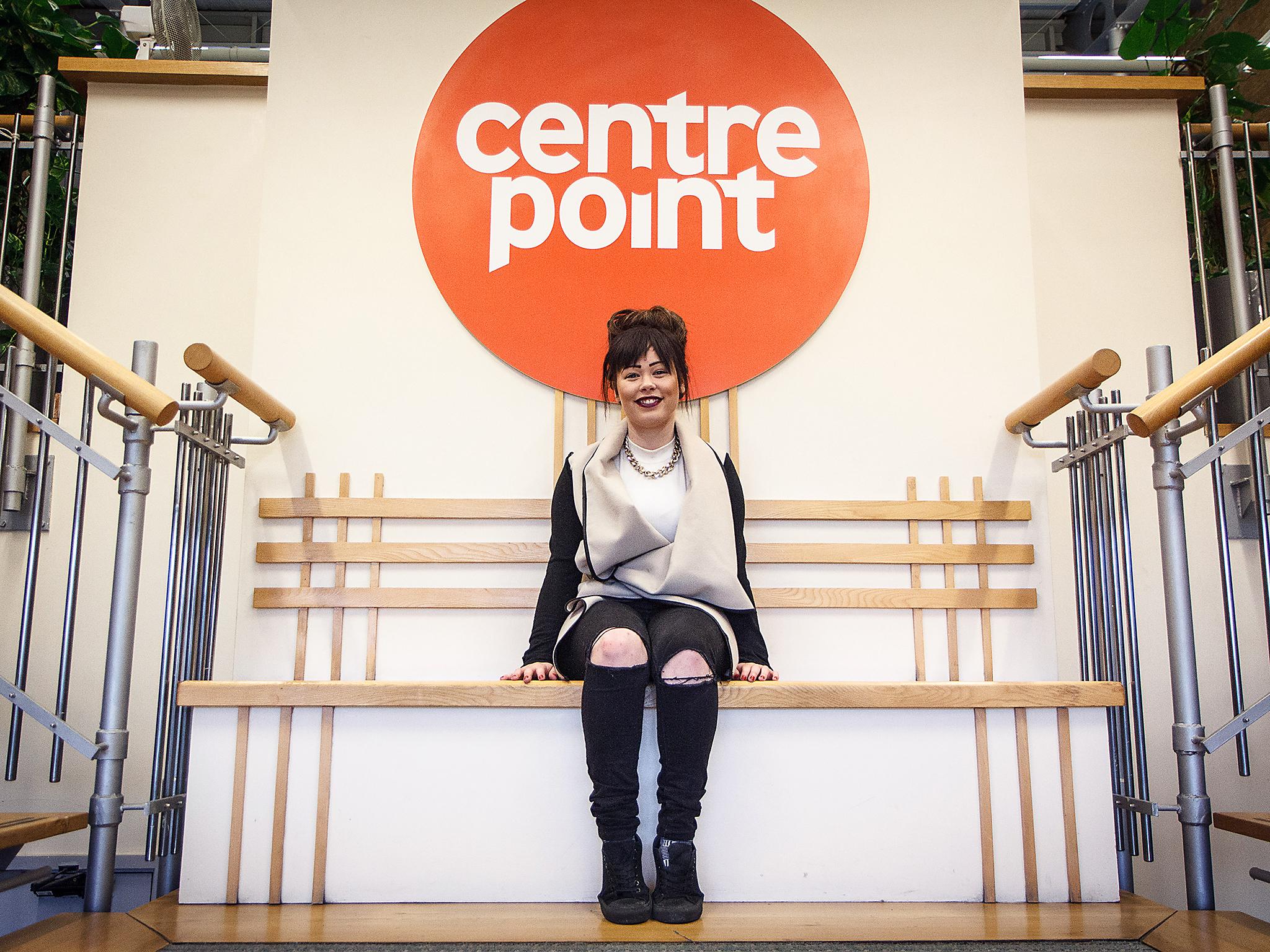
Centrepoint research also shows how young people are turning to desperate measures when facing homelessness.
The charity found that 12 per cent of young homeless people have gone as far as committing a crime so they could be taken into a police cell. Nine per cent have tried to get themselves admitted to hospital casualty units to get themselves a bed for the night.
When it came to homeless children under the age of 18, 61 per cent admitted to feeling unsafe.
A council’s duties
Under the statutory homeless regulations, councils have a legal duty to house young people if their immigration status is such that they are eligible for public funds, if they have a local connection to the area, are unintentionally homeless, and classed as in ‘priority need’.
To be classed as priority need in England, young people need to show they tick at least one of a number of boxes, including: fleeing domestic violence, leaving prison, being pregnant or having a disability or a mental illness. Under-21s who were in care between the ages of 16 and 18 are also considered priority need.
Outside this framework, councils can also provide those who are vulnerable but don’t fit the statutory homeless criteria with “prevention and relief” support. This could include finding them temporary accommodation or arranging mediation to heal rifts with parents so young people can stay in the family home.
According to Centrepoint, however, sometimes high demand combines with a shortage of housing supply and of financial resources to make it difficult for councils to help everyone
“The helpline will be a key intervention,” said Centrepoint chief executive Seyi Obakin. “The critical thing is to give young people information, so they make the right decisions, and don’t start on the downward spiral into things like drugs, alcohol and gangs that is the killer for young homeless people.”
He was backed by Mr Noblet, who said that if it worked, the helpline will add to Centrepoint’s record of actually saving the taxpayer money.
The charity, he said, is diverting young people away from crime and expensive prison stays. It is preventing them from suffering the ruinously unhealthy lifestyle associated with homelessness, while teaching them life skills that include instruction in cheap, healthy cooking – and by so doing, it is stopping them from being a drain on NHS budgets.
And thanks to Centrepoint, young people are being turned from potential benefits claimants into hard-working taxpayers. Which means, said Mr Noblet, that Centrepoint estimates that for every £1 the charity spends, the taxpayer saves £2.40.
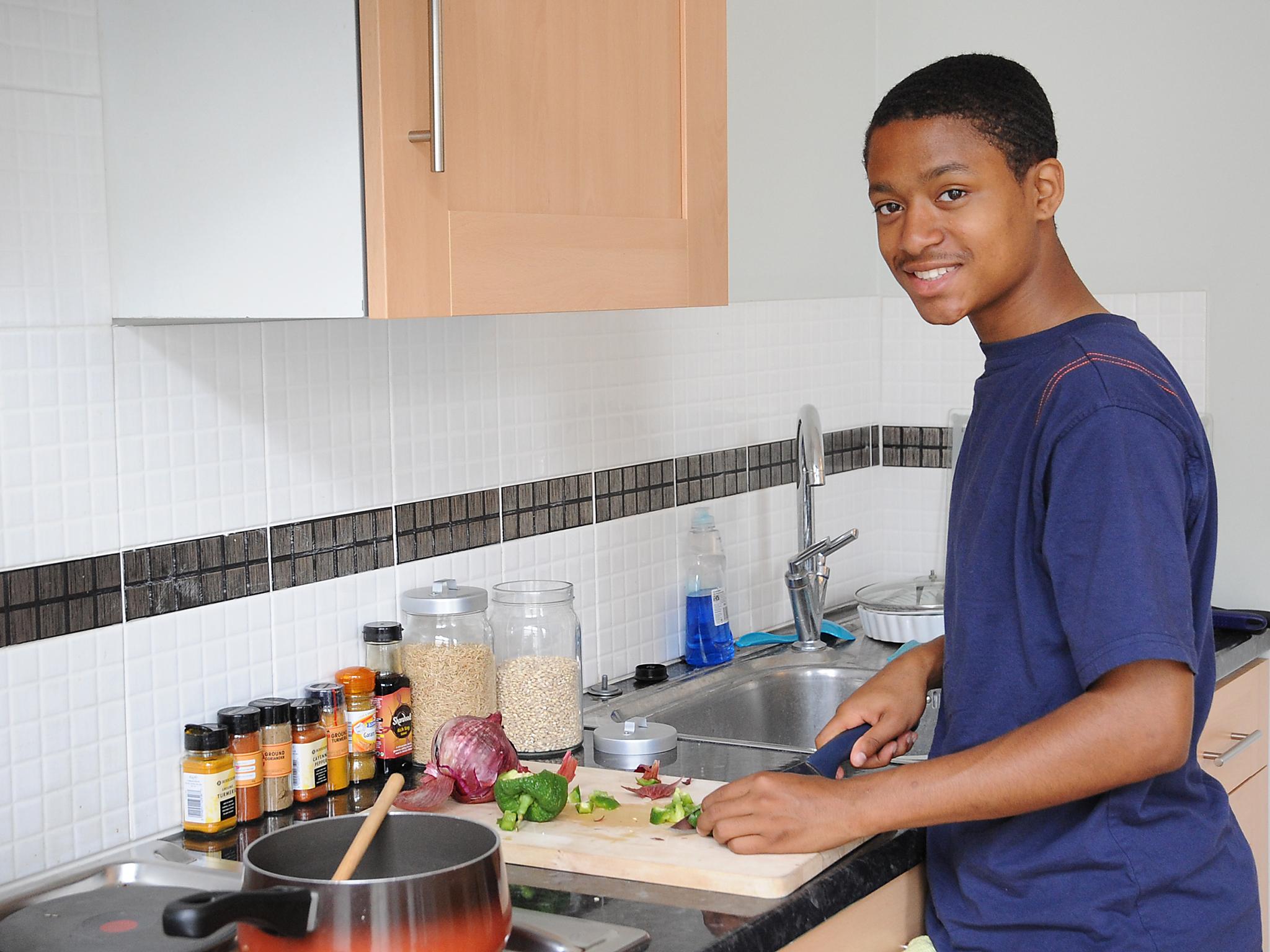
The helpline, he said, might aim to save some of the most vulnerable young people in the country, but the side effect was a saving for the taxpayer:
“Wouldn’t you be livid if as a taxpayer you found out that a little up-front investment in a young person could have stopped them from becoming a repeat offender or a repeat homeless benefits claimant?
“The helpline is the right thing to do for young people, for the taxpayer, for everyone."
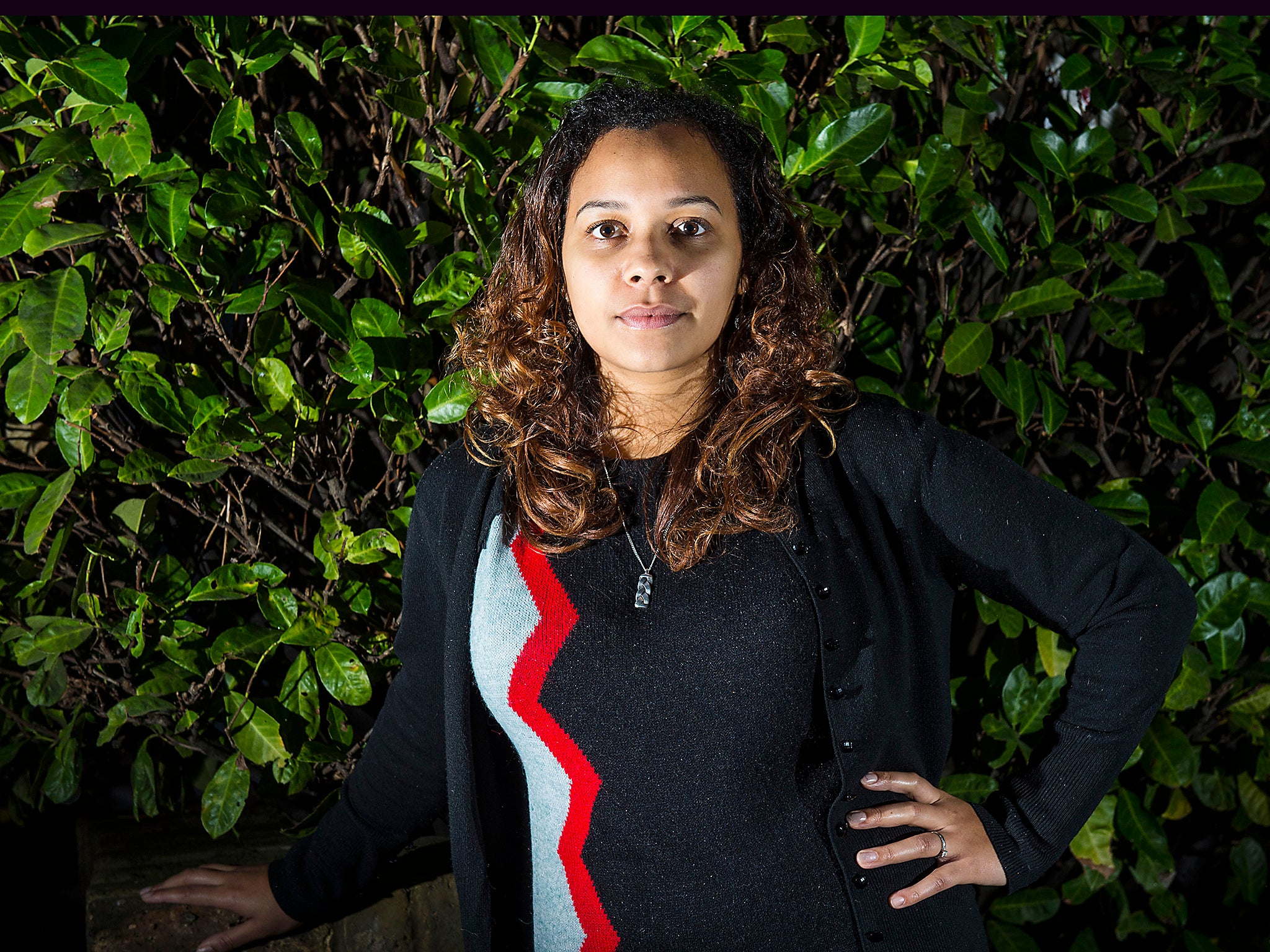
'They want you to be on the point of being on the streets begging'
When she was 16, Sade Banks-Brown sought help from her west London council after her own depression and her mother’s bipolar disorder caused a breakdown in the family relationship, which led to her being asked to leave home.
Ms Banks-Brown, now 24, said that when she first approached the council: “The woman behind the counter at the housing office said ‘There’s a long waiting list’. I was sat with my friend who was six months’ pregnant, with all she had in two black bin bags. They were telling her the same thing.”
“Essentially,” she added, “They want you to be on the point of being on the streets begging, which is one version of homelessness – but there is also the version where your mum doesn’t want you in the house, and you’re vulnerable.
“But you have to sit there until they close the doors and kick you out, and then come back the next morning at 9am when the security guard opens up again.”
She added that many young people, especially when at a low ebb because of imminent homelessness, would lack the wherewithal to keep persisting. They would, she said, resort to other means.
“I knew girls who would find a boy, for a house to stay in. In their minds it wasn’t prostitution, it was ‘I kind of like him…’ You spiral downwards.”
Ms Banks-Brown said she eventually received help from the council, but only after she kept turning up at the housing office “nearly every day, for two or three weeks”.
Ms Banks-Brown, who later turned her life around with the help of Centrepoint, said the helpline could be “a lifeline” for young people facing such problems.
A spokesman for the Department for Communities and Local Government said: “Homelessness amongst those aged 16-24 has fallen by 17 per cent since 2010. While this is good progress, one person without a home is still one person too many.
“This Government wants to build a country that works for everyone and that’s why we’ve invested £500m to tackle homelessness – including prevention funding and £40m for councils to help rough sleepers.
“Just last month we announced that we would be backing [MP] Bob Blackman’s Homelessness Reduction Bill, which will also provide vital support for many more people.”

How to donate to The Independent’s Christmas Appeal
The Independent’s Homeless Helpline appeal is raising money for the Centrepoint Helpline, a brand new support service that will save young people from ending up on the streets.
To donate you can:
Call
0300 330 2731
Text
HOME66 £5 to 70070
Post
Freepost RTKC-JRGU-ZYGT
Centrepoint
40-42 Phoenix Court
Hawkins Road
Colchester
CO2 8JY
Join our commenting forum
Join thought-provoking conversations, follow other Independent readers and see their replies
Comments